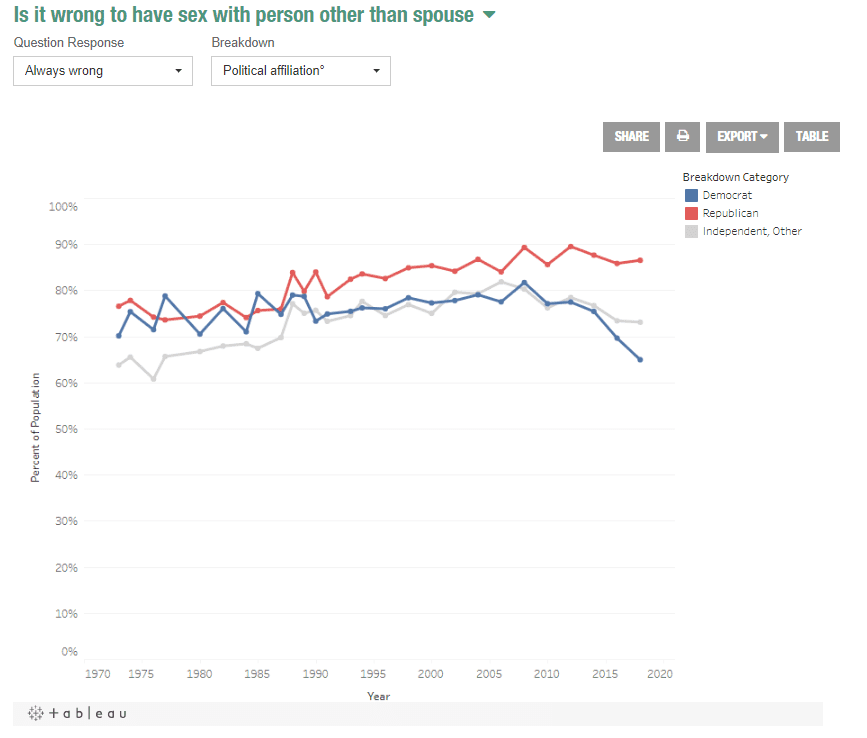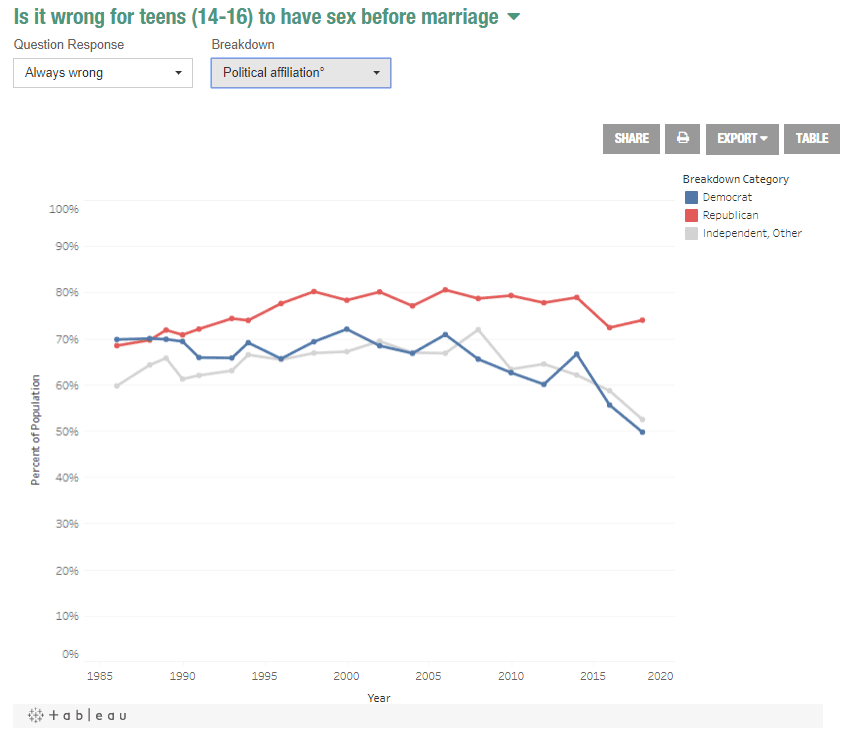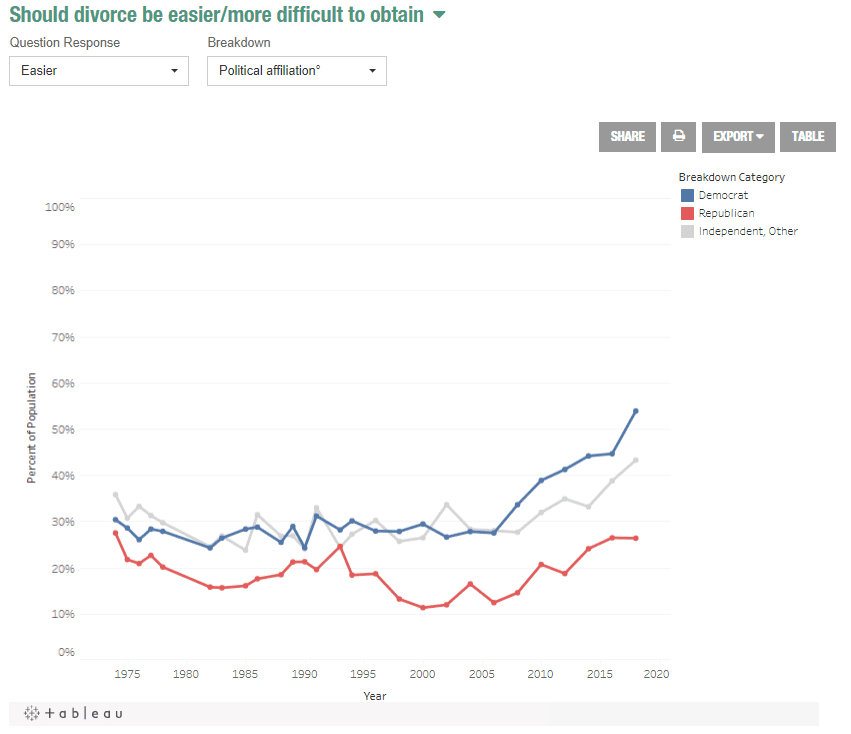
OK, confession time: who among you hate-reads the Slate advice column “Dear Prudence” or the more explicit “How to Do It“? These two, and especially the latter, don’t hesitate to suggest “opening up the relationship” as a cure to something that’s gone wrong — and, no, that doesn’t mean being more open with your partner about what troubles you. It means one or both partners having sex with others, openly, in some sort of negotiated arrangement specifying the conditions. If the letter-writer is dissatisfied with the frequency of sex: “see if your partner will agree to opening up the relationship.” If the letter-writer or partner wants to experiment with different activities in bed: “consider opening up the relationship.” If the letter-writer feels left out because the partner had done more wild-oats-sowing, if the letter-writer has come to identify as bisexual, if the letter-writer simply wants to.
And what’s more, the “negotiation” that is a part of these modern relationships is treated not as a sign that it’s not a good idea, but quite the opposite: it’s treated as an achievement to have negotiated a “no one’s jealous” open relationship, and you’re a better person for having done so, and overcoming any worry you might have that your partner might like the third party better, makes you superior as well.
Now, the “Prudence” columnist, at least on one occasion, has said, if your spouse says no, you have to respect that. The “How to do it” folks, on the other hand, always seem very much on the verge of saying, “being non-monogamous is an identity that is equally worthy of respect.” I am not going to dig through old columns, but I do recall advice that goes along the lines of, “she should be willing to compromise” and “maybe you can set the parameters narrowly and try to get her to agree over time.” Granted, they don’t sign off on one spouse secretly having sex without the other’s knowledge, but they do seem to think that a partner should be willing to accede to the other’s wishes.
All of which brings me to the GSS, or the General Social Survey, a biennial survey of Americans on social attitudes. I’d been asking myself, as the “open relationship” becomes increasingly a part of popular culture in this way, whether this is really becoming more prevalent, or whether this is just a matter of Slate (and a whole host of other websites) simply on the hunt for more readers. But here are two charts to consider.

Yes, as late as 1990, Republicans and Democrats had an identical opinion here. Then until 2010, their viewpoints split, but the gap was more or less stable, as it has been for Republicans since then. Democrats, on the other hand? In 2018, 35% believed that under at least some circumstances, extramarital sex was OK.
And the second question asks about teen sex.

Again, the divide is substantial – only 50% of Democrats object to 14 – 16 year olds having sex.
Now, using the Trends tool limits the degree to which you can suss out correlations (for instance, to what extent do Democrats and Republicans diverge, at any given age bracket?), but nonetheless, what does this mean? Where are we headed? What will the 2020 survey results look like? And what will this mean for our children and the relationships they build? After all, there’s a mismatch here — greater approval for young-teen sex, while at the same time those teens aren’t actually having more sex, but less. Is this really a matter of people being conditioned to say, “you can’t make any moral judgments about anyone?”
It’s hard to find similar “moral judgment” questions, but here’s another odd set of responses:

To the best of my understanding, divorce is objectively quite easy to obtain. The only roadblocks are issues of dividing property, child custody, etc., not, as may have been the case when this question was first asked, requirements to prove the fault of one or the other spouse. Clearly, when 26% of Republicans and 54% of Democrats disagree, there’s something else influencing their opinion, though I can’t really guess what — unless the old roadblocks are forgotten and people are replying thinking of someone who they think was treated “unfairly” in a divorce?
So this is where I invite readers to share their thoughts? How do you explain this? And do these divergences matter?











